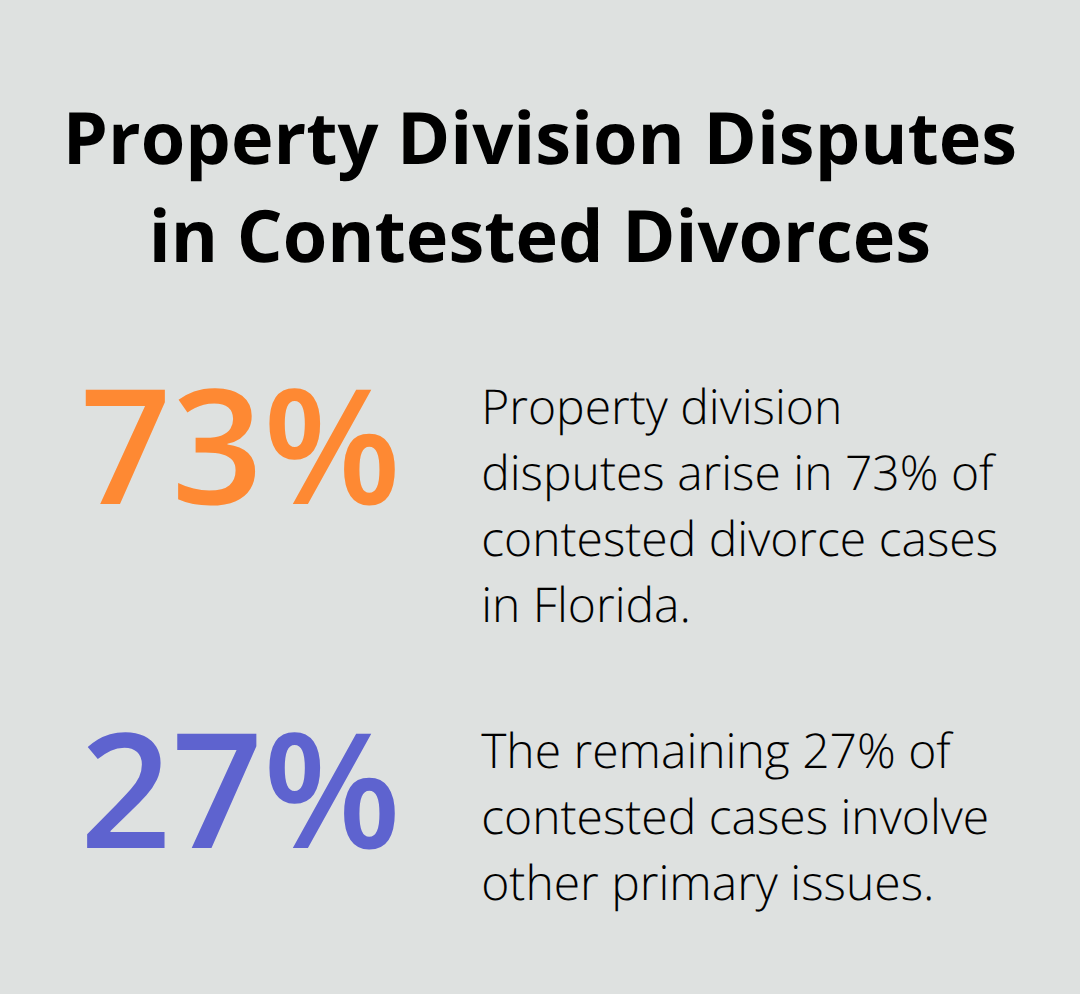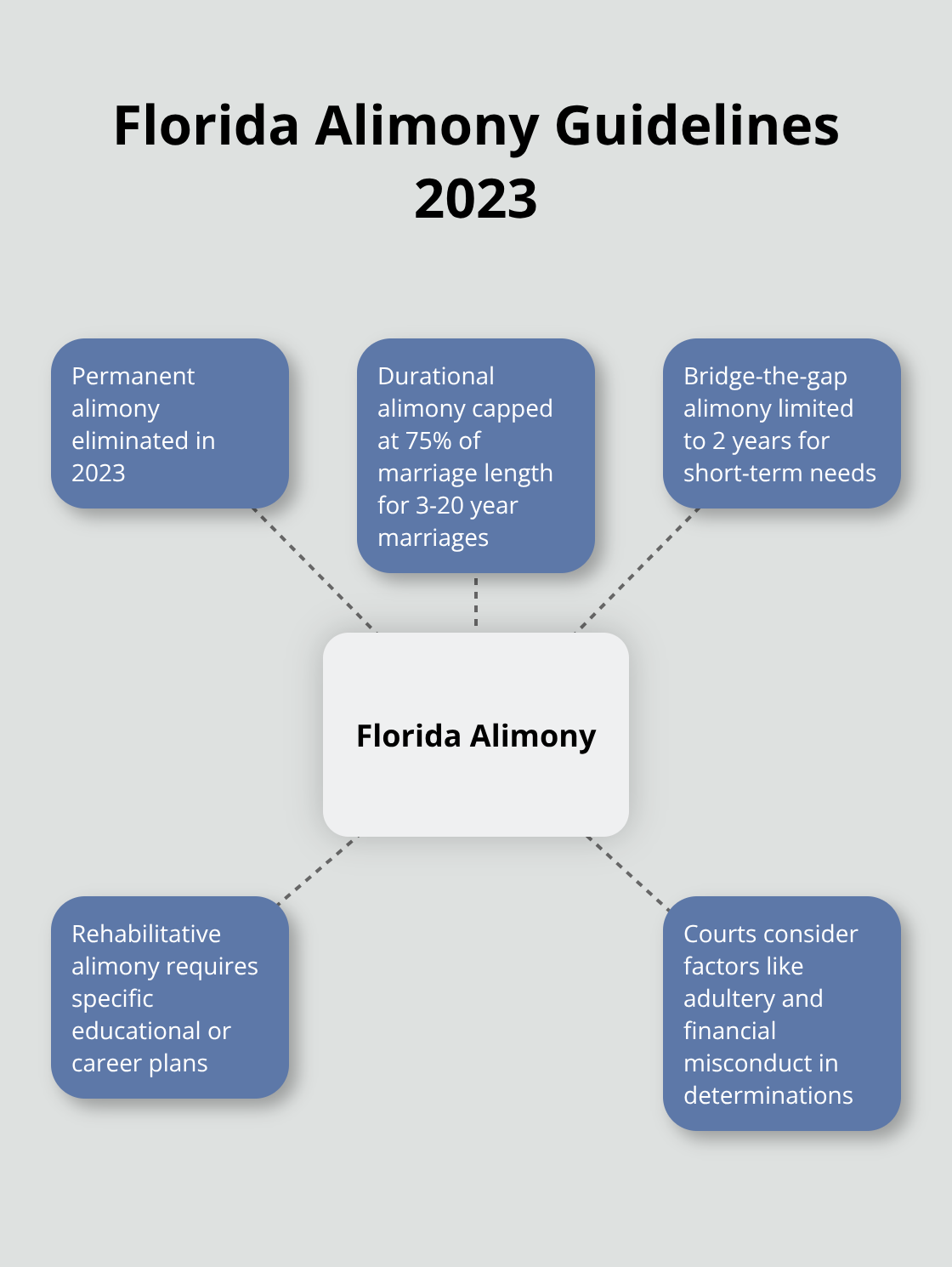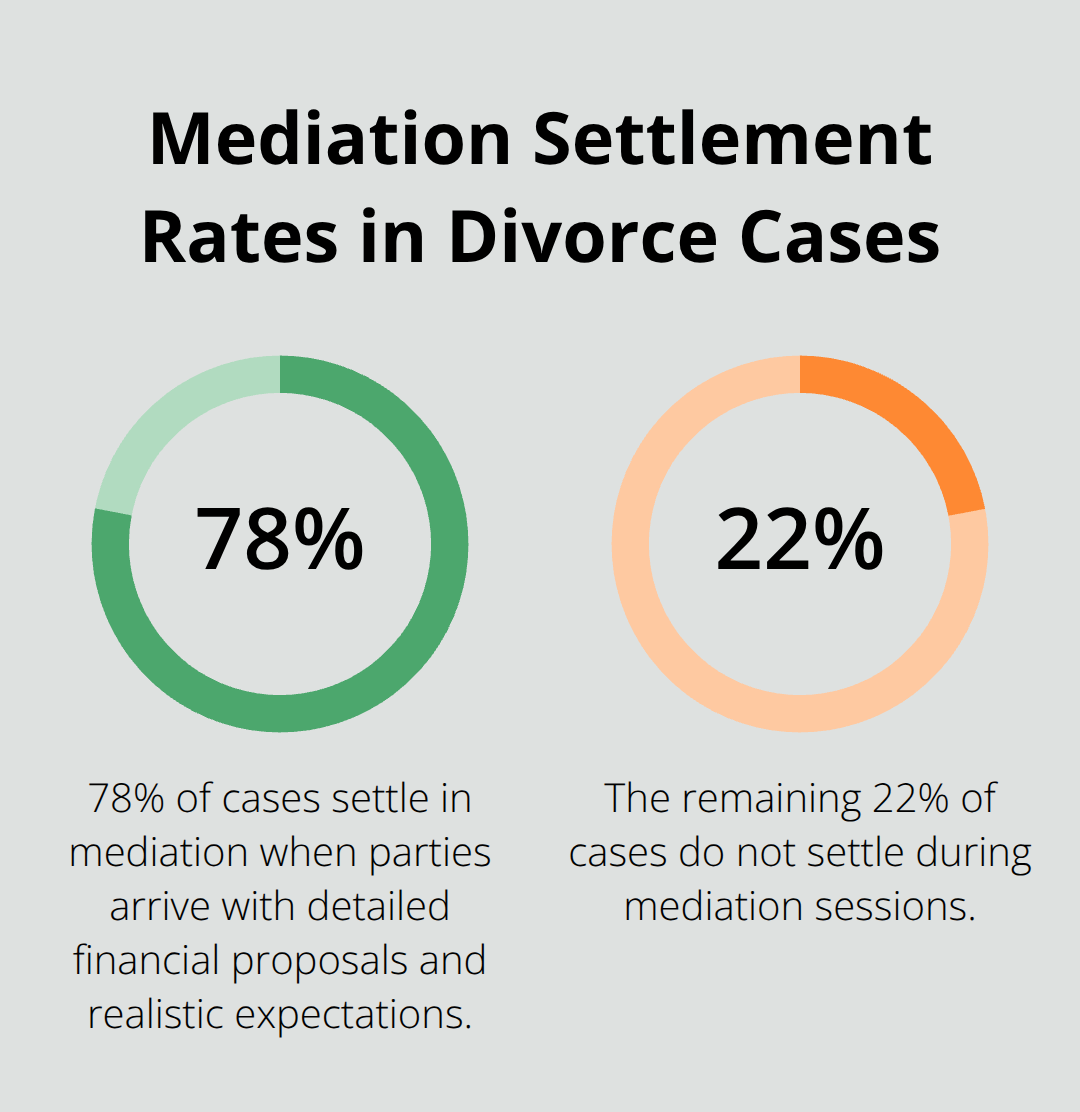Contested Divorce Melbourne Florida [What You Need to Know]
Our Blog
Contested Divorce Melbourne Florida [What You Need to Know]
![Contested Divorce Melbourne Florida [What You Need to Know]](https://harnagelaw.com/wp-content/uploads/emplibot/Contested-Divorce-Melbourne-Florida-_What-You-Need-to-Know__1758230567.jpeg)
Contested divorce Melbourne Florida cases involve spouses who cannot agree on major issues like property division, child custody, or alimony. These disputes require court intervention to resolve conflicts.
At Harnage Law PLLC, we understand how overwhelming these legal battles can become. The process typically takes 6-12 months and involves complex procedures that demand careful preparation and strong legal representation.
What Makes a Divorce Contested in Melbourne Florida
A contested divorce occurs when spouses disagree on at least one major issue that requires court resolution. Florida Statutes Section 61.052 allows either spouse to file for dissolution based on the marriage being irretrievably broken. The filing spouse becomes the petitioner, while the other becomes the respondent. Florida courts impose a 20-day waiting period after service before proceedings can advance, and both parties must complete mandatory disclosure forms including Financial Affidavits within 45 days of service.
Primary Disagreement Areas That Create Contest
Property division disputes arise in 73% of contested cases according to Florida Bar Association data. Couples battle over marital home equity, retirement accounts, business valuations, and debt allocation. Child custody conflicts intensify when parents disagree on time-sharing schedules, decision-making authority, or relocation requests. Alimony disputes emerge when one spouse seeks support while the other contests the amount or duration. The presence of minor children automatically extends the process, requiring parenting plans and child support calculations based on both parents’ incomes and overnight schedules.

Court Timeline and Mandatory Steps
Contested divorces in Brevard County typically require 8-18 months from filing to final judgment. Florida mandates mediation before trial, costing $200-400 per session but resolving 60% of remaining disputes. Cases involving children require attendance at the Helping Children Cope with Divorce seminar within 45 days of filing. Discovery phases can extend 4-6 months as parties exchange financial documents, conduct depositions, and gather evidence. Trial preparation adds another 2-3 months before reaching the final hearing where judges make binding decisions on unresolved matters.
Financial Documentation Requirements
Both parties must file comprehensive Financial Affidavits that detail income, expenses, assets, and debts. Courts require bank statements, tax returns (typically three years), pay stubs, and retirement account statements. Business owners must provide additional documentation including profit and loss statements, balance sheets, and business tax returns. Failure to provide complete financial disclosure can result in sanctions or unfavorable court rulings.
These complex requirements and potential disputes make understanding the specific issues at stake essential for anyone facing a contested divorce.
Key Issues in Contested Divorce Cases
Property division battles consume most contested divorce energy, with Florida’s equitable distribution law that requires fair but not necessarily equal asset splits. Courts consider marriage length, each spouse’s economic circumstances, and contributions to marital assets. The marital home presents the biggest challenge, as 68% of couples cannot afford to maintain mortgage payments alone according to National Association of Realtors data. Retirement accounts require Qualified Domestic Relations Orders to divide without tax penalties, while business valuations demand professional appraisers that cost $5,000-15,000 per assessment. Courts scrutinize separate property claims intensely and require clear documentation that assets remained untitled and unfunded by marital resources throughout the marriage.
Alimony Calculations Follow Strict Guidelines
Florida eliminated permanent alimony in 2023 and caps durational alimony at 75% of marriage length for unions that last 3-20 years. Courts calculate support with the higher-earning spouse’s gross income minus reasonable expenses, with awards that typically range 25-35% of income difference. Bridge-the-gap alimony cannot exceed two years and helps spouses who transition to meet legitimate short-term needs. Rehabilitative alimony requires specific educational or career plans with defined timelines and costs. Judges consider adultery, domestic violence, and financial misconduct when they determine amounts (often reducing awards by 25-50% for proven marital fault).

Child Custody Decisions Prioritize Stability
Florida courts start with 50-50 time-sharing presumptions but adjust based on children’s best interests. School district boundaries heavily influence decisions, with judges who remain reluctant to disrupt established educational environments. Work schedules matter significantly – parents with inflexible hours or frequent travel face reduced overnight time. Geographic distance creates complications, as courts rarely approve relocations that exceed 50 miles without compelling justification. Child support calculations follow strict income share guidelines, with base amounts that range from $213 monthly for one child at minimum wage to $2,847 for high-income families. Healthcare costs, childcare expenses, and extracurricular activities add 20-40% to base support obligations.
Property Valuation Challenges
Complex asset division requires professional appraisals for businesses, real estate, and collectibles. Courts often order neutral evaluations when spouses dispute values (particularly for closely-held businesses or professional practices). Stock options, pension benefits, and intellectual property create additional complications that demand specialized knowledge. Hidden assets investigations may become necessary when one spouse suspects financial deception, adding $3,000-8,000 in forensic accounting costs.
These financial determinations set the foundation for your post-divorce life, but the legal strategies you employ during discovery and negotiations will ultimately determine whether you achieve favorable outcomes.
Legal Strategies and Court Procedures
Discovery drives contested divorce success, with comprehensive document requests that uncover hidden assets and establish financial patterns. Florida Rules of Family Law Procedure 12.285 requires mandatory disclosure within 45 days, but strategic attorneys push beyond basic requirements. Subpoenas to banks, employers, and business partners reveal financial misconduct in 34% of high-asset cases according to American Academy of Matrimonial Lawyers data. Depositions cost $800-1,500 per session but provide sworn testimony that locks opponents into specific positions. Digital forensics examinations of computers and phones expose deleted communications and hidden accounts, with recovery rates that exceed 85% for data deleted within six months.
Evidence Collection Methods
Attorneys request bank statements, credit card records, and tax returns to trace asset movement patterns. Business records reveal hidden income streams and personal expense payments that reduce reported earnings. Social media investigations uncover lifestyle inconsistencies and undisclosed relationships that affect alimony claims. Private investigators charge $75-150 per hour but document behavior patterns that influence child custody decisions. Financial analysts review complex investment portfolios and business valuations to identify underreported assets (particularly in professional practices and closely-held companies).
Mediation Tactics That Force Settlement
Florida mandates mediation before trial, but smart preparation transforms these sessions from formalities into powerful negotiation tools. Mediators report 78% settlement rates when parties arrive with detailed financial proposals and realistic expectations. Attorneys prepare three settlement positions: ideal, acceptable, and walk-away minimums. Private mediation with retired judges costs $3,000-5,000 but resolves cases 23% more often than court-appointed mediators. Document everything during mediation sessions, as partial agreements become enforceable even if overall settlement fails.

Trial Preparation Demands Precision
Successful trial attorneys organize evidence chronologically and prepare witness testimony that tells compelling stories. Florida courts limit trial time strictly, with most family law cases that receive 4-8 hours total. Pre-trial statements must summarize issues concisely and identify specific relief requested. Expert witnesses for business valuations or child psychology cost $5,000-15,000 but swing judge decisions in complex cases. Mock trials with jury consultants reveal presentation weaknesses and cost $8,000-12,000 for high-stakes cases. Document exhibits require professional organization, as judges penalize attorneys who waste court time. Settlement discussions continue through trial, with 40% of cases that resolve after opening statements when parties recognize litigation risks. A Melbourne divorce lawyer analyzes your unique circumstances to create tailored legal strategies throughout this process.
Final Thoughts
Contested divorce Melbourne Florida cases require strategic preparation and thorough documentation to protect your financial interests and parental rights. Discovery processes uncover hidden assets in one-third of high-asset cases, while mediation sessions resolve 78% of disputes when both parties arrive with realistic settlement expectations. Trial success depends on precise evidence organization and compelling witness testimony within Florida’s strict court time limits.
Florida’s recent elimination of permanent alimony and evolving child custody guidelines create new legal challenges that demand current knowledge of family law statutes. Asset valuation disputes, property division complexities, and support calculation changes can dramatically impact your post-divorce financial security. Professional legal representation becomes essential when navigating these high-stakes decisions that affect your family’s future.
We at Harnage Law PLLC provide dedicated legal representation for complex family law matters throughout Melbourne Florida (including contested divorce proceedings that require aggressive advocacy). Our attorneys deliver personalized attention and strategic counsel tailored to your specific circumstances and goals. Contact us today to schedule a consultation and begin protecting your rights in this demanding legal process.
